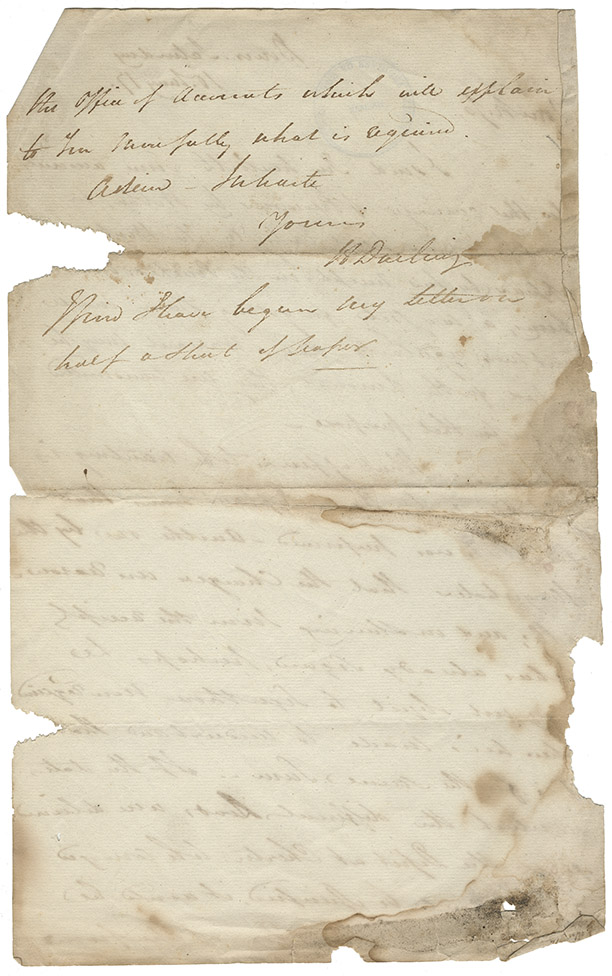Nova Scotia Archives
New Ross: From Family to Community
Letter from Harry Ross, Prince Albert, to Mas ? Par
10 pages previous page page 1 next page
Item discusses the part that Henry Ross played in the Red River Rebellion. Written in bold across the top of the letter is "Please don't publish this letters" Ross describes Riel as having returned to his native county to attempt at "getting halfbred rights". Ross describes Riel as being viewed as a good representative for these people, but that no one had imagined a war would take place. Ross describes soldiers as entering Winnipeg with the intention of arresting Riel and any of his followers. Ross states that what everyone knows now "it was undoubtedly the intention of the halfbreds and Indians to murder every white-settler". Ross says that on the 18 March the French made their first stand by gathering up all of the Scottish and English "halfbreds". Ross and an "old chum" of his Astley ? wanted to find out what the French were "up to"; discusses their journey. Gives a vivid description of being assaulted by a "band of twenty half-breds"; they were taken to Duck Lake by these individuals at gun point. Ross and his friend were help in a small room in the upstairs (of a house?) and the following day more hostages were added to their room. Ross describes the Battle of Duck Lake as taking place right next to where they were being held hostage. After the battle Riel summoned Ross to speak to him (as Ross knew Riel previously) and Riel explained that he was setting up a new Provisional Government and offered to make Ross a full sheriff. Ross asked Riel if the bodies in the field could be collected, after deliberating with his council Riel allowed Ross and another prisoner, Sanderson, go out and collect the bodies and place them in a small Indian house. Ross describes his sorrow of seeing many dead boys he had come to know well for the past five years. Ross describes leaving Duke Lake and travelling to Batoche, were the Indians debated on whether to kill him or not; describes being a prisoner for a week with no chance to escape. Ross was also present for the Battle of Fish Creek; where he his feet and hand were bound and was placed in a small cellar. After the battle, Middleton was preparing to seize the area, and Ross was once again placed in the cellar. He remained there for ten days until troops charged in and rescued the prisoners; describes being held in a building that was under fire, with bullets hitting the house like "hail". Ross's companion, Astley ?, ran to Middleton to tell him all that they had hear Riel say about the battle. After the battle was over Ross and Astley ? tried to doctor the wounded soldiers, they washed the wounds and for some "gave them so much laudanum that they never woke up again". Ross explains that he knew they were going to die anyways so he thought he would help them out and make it quick. Ross stayed for a few days after the battle and described the dead bodies and how many of the women were burning them. After several days he got a horse and headed to P.A. Ross says that he has written ten pages but is only telling half of what happened to him; and he was making a claim of 5 000 dollars in damages to the government because he felt he deserved something. Riel was taken to Regina to be tried and Ross was an important witness in the case. End the letter for apologizing for any mistakes in the writing,
Reference: Ross Family Nova Scotia Archives MG 1 volume 794 number M17

